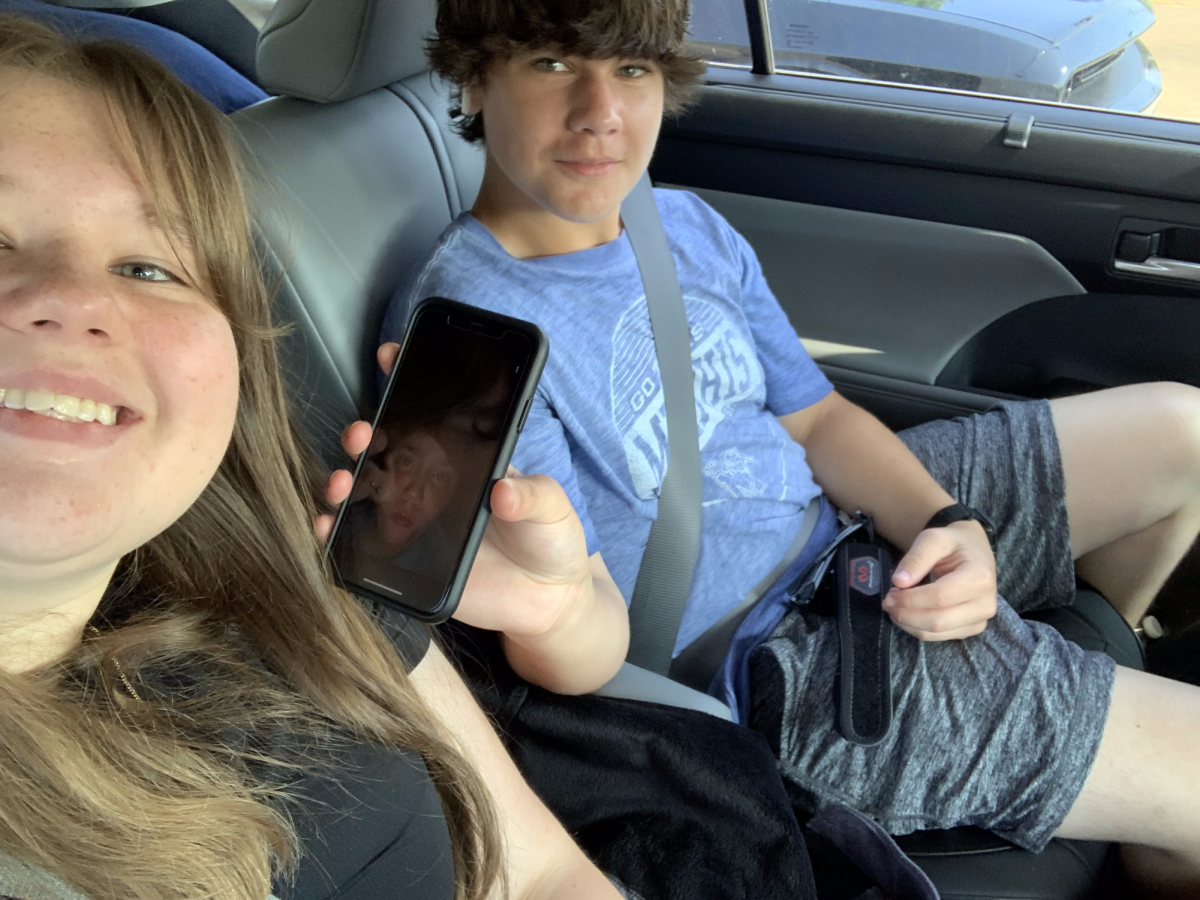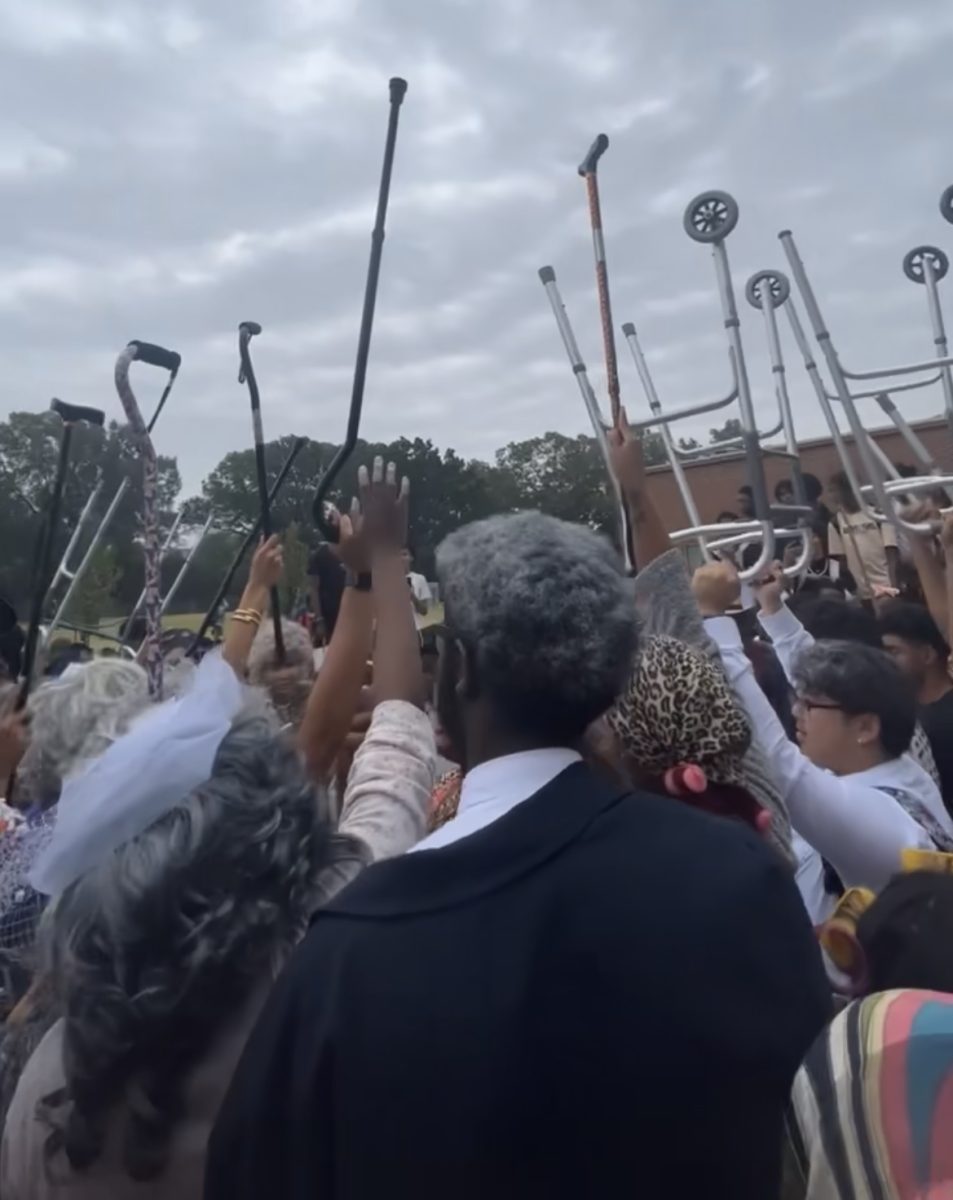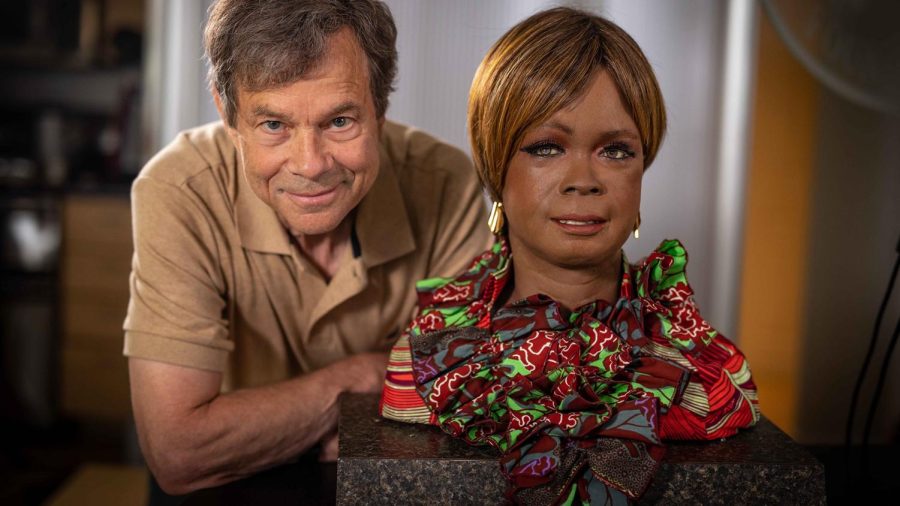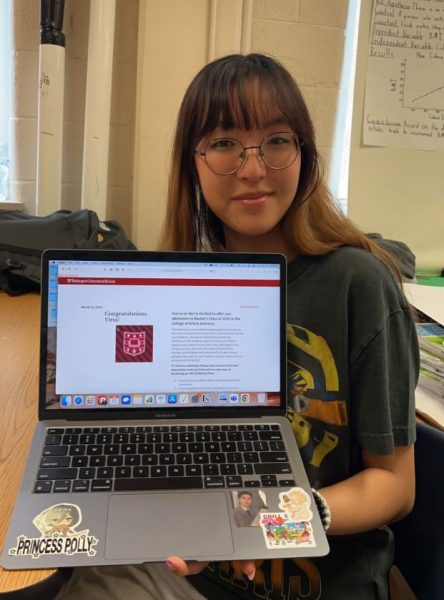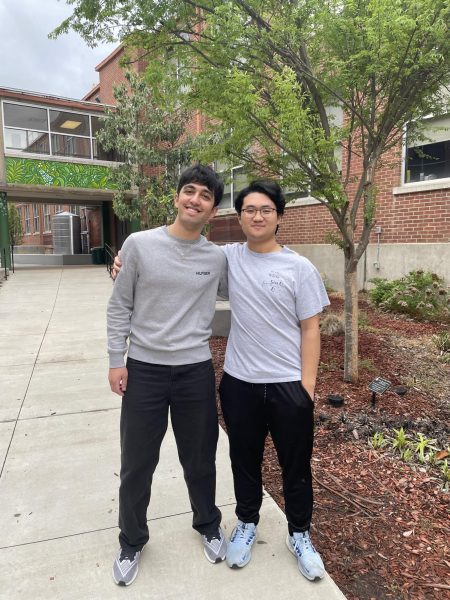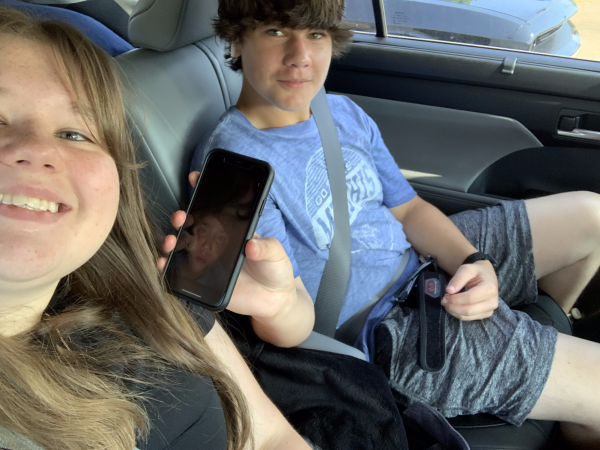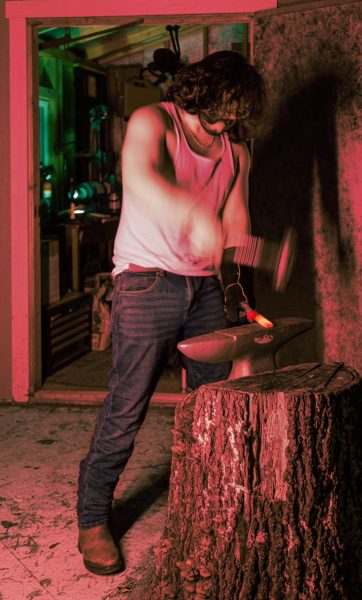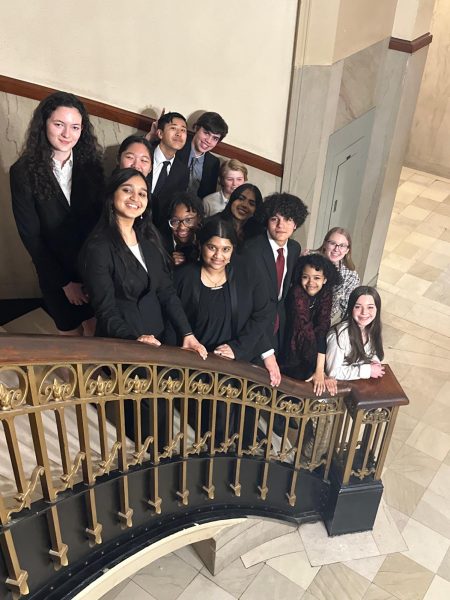Lightman dives into life’s mysteries with new docuseries
USED WITH PERMISSION//SEARCHING: OUR QUEST FOR MEANING IN THE AGE OF SCIENCE
Alan Lightman poses with Bina48, the world’s most advanced artificial intelligence robot. Lightman and Bina48 discussed the ethical boundaries of artificial intelligence.
“How do we human beings fit into the cosmos?” and “How do our complex human experiences like consciousness, falling in love and feeling connected to nature arise from just atoms and molecules?” are the two major questions famed physicist, writer and White Station alumni Alan Lightman answers in his new three-part docuseries “Searching: Our Quest for Meaning in the Age of Science.” From publishing various award-winning books and essays to making multiple ground-breaking discoveries in astrophysics, Lightman exemplifies a culmination of his past works through this series.
Best known to Spartans as the author of “Einstein’s Dreams” and as the founder of the annual LaRose Todd Prize in Creative Writing contest, Lightman provides credit to White Station for his multidisciplinary success.
“I wanted to honor [English teacher LaRose Todd] and to honor White Station for the encouragement I got as a writer,” Lightman said. “I wanted [the contest] to be a continuing reminder of [White Station’s] excellent English department.”
Even before becoming a Spartan, Lightman’s passion for both the sciences and arts was displayed as he built rockets — mixing his own rocket fuel — while simultaneously writing poetry. His book, “Einstein’s Dreams,” demonstrates this passion as he conjures up 30 different worlds whose time, relativity and physics vary.
“I started [the book] by writing down about 10 or 15 different ways that time might behave, and then I imagined a little short story that would go with each one,” Lightman said. “[W]hen I had written about 25 or 30 of the dream worlds, I realized that I needed some narrative glue. So, that’s when I put the interludes with Einstein and Besso.”
Lightman’s docuseries is based on various past works such as his books “Searching for Stars on an Island in Maine” and “The Transcendent Brain: Spirituality in the Age of Science.” Through their visual presentation in the series, the complex topics discussed are more clearly understood.
“The first book deals with the philosophical and ethical dimensions of science,” Lightman said. “It looks at big questions like, ‘Why do we yearn for permanence when everything around us is impermanent?’… The second book tries to reconcile a scientific view of the world in which everything is made out of atoms and molecules and nothing more, to reconcile that materialist view with the complex human experiences … it tries to give a non-biased explanation of those experiences.”
In “Searching,” Lightman travels all over the world to speak with some of the most famous philosophers, faith leaders, ethicists and Nobel Prize winner scientists to discover the answers to some of the long-held mysteries concerning human life.
“I had two favorite parts,” Lightman said. “I had a conversation with the Dalai Lama … the Dalai Lama is one of the major religious leaders of the world … and the other favorite part was I had a conversation with the robot, the most advanced android in the world, named Bina48 … She has the head and shoulders of a woman.”
While the science-centered topics of this docuseries are some Lightman is fairly familiar with, he still faced multiple obstacles while producing the show. From correct voice tones to endless work days, Lightman persevered through the hardships of acting and filming.
“The main struggle is being a charismatic personality on screen,” Lightman said. “[I]’m not particularly animated, and so I had to learn how to be more animated. I actually had to get a voice coach to coach me in speaking in a more lively manner … I had to travel all over the [world] and I had to … sometimes work from eight in the morning until late at night filming with the camera crew … it was pretty exhausting.”
“Searching” came out on Jan. 7, 2023 on public television stations and the Public Broadcasting Service (PBS). Lightman’s diving into the philosophical, moral and theological questions raised by science lead him to believe anyone could learn something from his docuseries.
“You don’t have to be particularly interested in science, although it has science,” Lightman said. “I think anybody who is interested in thinking about big ideas and thinking about how human beings fit into the cosmos [could watch it].”
Your donation will support the student journalists of White Station High School. Your contribution will allow us to purchase equipment and cover our annual website hosting costs.



